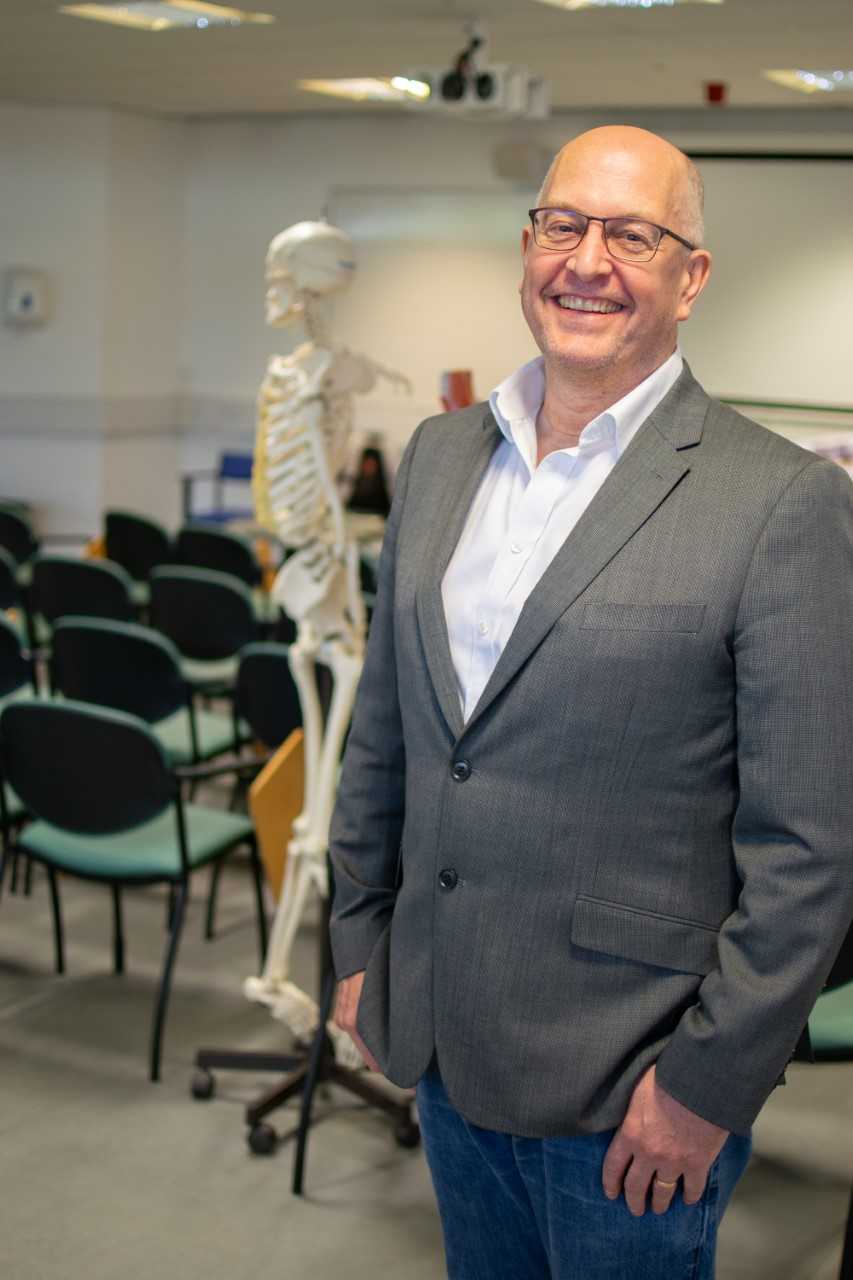Lecturer in physiotherapy at the University of Salford to publish his 10th book
Dr Stuart Porter, Lecturer in Physiotherapy at the University of Salford, is about to add another title to his established list of publications. 'The Student Physiotherapist's Companion: A Case-Based Test-Your-Knowledge Guide' will mark the 10th title on this list and is due to be published by the end of 2023.
Today, students can access clinical, anatomical, and physiological information from a multitude of platforms and sources. Although it might seem the level of available educational content is plenty, Dr Porter has identified an unmet need - the possibility for students to easily access information from patient cases and how to process it in a clinical setting.
In an attempt to fill this content gap, the book will supply a wide range of clinical case studies. It will showcase realistic assessments, often based on real-life patient scenarios, and will allow students to develop and explore their own problem-solving skills and compare their answers with the options and plans of the expert chapter authors.

"I am particularly excited about this book as it reveals the thought-process of clinical world leaders and professional interest groups when assessing patients and building their therapy pathways. This gives students the chance to have a real 'insider' view from field specialists."
- Why will this book be an asset for undergraduate students?
Physiotherapy students need to develop acute clinical reasoning skills from an early stage. This can be a challenging step in their training and is often rated as one of the most problematic issues amongst undergraduate students and their educators. Dr Porter’s book aims at addressing this issue.
- What will it cover and in how much depth?
The book will cover core areas of MSK Neurology and respiratory care along with looking at issues such as brain injury, women's and men's health, occupational health, animal physiotherapy, oncology and pain management, among others.
The content is targeted at both undergraduate and pre-registration MSc Physiotherapy students. To ease learning, each case study is labelled with a difficulty level ranging from easy to hard.

"This ended up being a much larger book than I originally envisaged - encompassing a greater breadth of topics and ultimately better reflecting the need for physiotherapy today."
- A multidisciplinary and international collaboration
The book will be grounded in the real world of clinicians and reinforced by the input from a very strong academic team. This includes the universities of Liverpool, Preston, Manchester, Keele, London, Coventry, Leicester, Brighton, UCL, Nottingham, and Georgia (USA). This international input can be of particular value for students interested in working internationally.
The future publication has also already attracted strong interest from UK-based teaching hospitals along with Chartered Society of Physiotherapy (CSP) clinics. The variety of collaborations could help further the content across Neurology, Occupational Health, Women’s Health, Physiotherapists in Respiratory Care, Obstetrics and Gynecology, and the Physiotherapy Pain Association.
- A Participatory Process involving students-led feedback
Dr Porter highlights the importance of students' feedback on the quality of the material he developed. In his words, student feedback is crucial in gaining truthful understanding of whether the content is correctly addressing students’ unmet needs and in collecting further insights on what they truly need. This step is crucial as Dr Porter points out as ultimately, the aim is to supply content which is approachable, understandable and offers real and tangible solutions. As a result, several students from the Physiotherapy programme at the University of Salford were involved in this project, and some of them even feature on the book's front cover.
'The Student Physiotherapist's Companion: A Case-Based Test-Your-Knowledge Guide' is due to be published by late 2023 and will be available at the University of Salford library, Elsevier and on Amazon.
